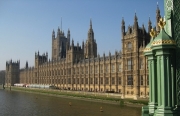

MPs have urged the Pensions Regulator to help employees who do opt-out due to financial difficulties during the pandemic to re-enrol than would happen normally under auto-enrolment.
In a report released today the Work and Pensions committee has urged the Pensions Regulator to help savers re-enrol in workplace pensions they have opted out of earlier than the normal three year timeframe.
The report also addressed the funding of DB schemes during the pandemic and the risk posed by pension scams.
The report said: “Employees cannot legally be encouraged by their employer to opt out of their pension contributions, but many people may opt out voluntarily if their incomes fall because of the pandemic. We recommend that the Pensions Regulator consider whether employees who do opt-out during the pandemic should be helped to re-enrol earlier than would happen normally under auto-enrolment.”
The report considered the flexible approach taken by TPR to businesses under financial pressure struggling to pay pension contributions.
It praised the flexible approach taken by the regulator as striking the right balance: “acknowledging the difficulties faced by many employers, while protecting pension savers as far as possible at a time when market conditions mean that contributions are particularly valuable.”
However, the report also questioned how this approach will work in practice, and told the regulator that they need to make their approach clear especially for small businesses.
The report said: “It may be that some conscientious employers, whose businesses and employees might benefit from a temporary pause in pension contributions, feel reluctant to rely on an assurance from the Regulator that it will not enforce the requirements.”
“We recommend that the Pensions Regulator communicate its expectations clearly to all employers, especially smaller businesses, which may find it harder to make use of the short-term flexibility. We will be monitoring the impact of the Pensions Regulator’s approach over the coming months, and in particular how well it is working for small businesses.”
The report also looked at defined benefit pensions and the flexible approach that TPR is taking to employers who are struggling to fund schemes during the pandemic.
MPs warned that unscrupulous employers could take advantage of the current situation and make deficit reduction contributions at a lower rate whilst still paying dividends and bonuses.
It said: “Following our predecessor Committees’ experience with BHS and Carillion, the Pensions Regulator must remain alert to the risk of unscrupulous employers not in financial difficulty seeking to take advantage.”
“If an employer is making deficit reduction contributions at a lower rate because of the pandemic, no reasonable person would expect them simultaneously to be paying dividends to shareholders and bonuses to senior executives. We recognise that there may be a small number of exceptions to this, but we would expect them to be wholly exceptional. We urge the Pensions Regulator to keep a close eye on this area, and to raise the alarm if it detects abuse.”
MPs also highlighted the risk of scams for pension savers and urged regulators to work together to monitor the effectiveness and reach of their communications.
The report said: “The focus on preventative warnings is both necessary and welcome. But the fact remains that some people will, sadly, fall victim to scammers. In most cases, they are unlikely ever to recover the money they have lost. We intend to undertake detailed work on pension scams in the near future.”
Leave a Reply